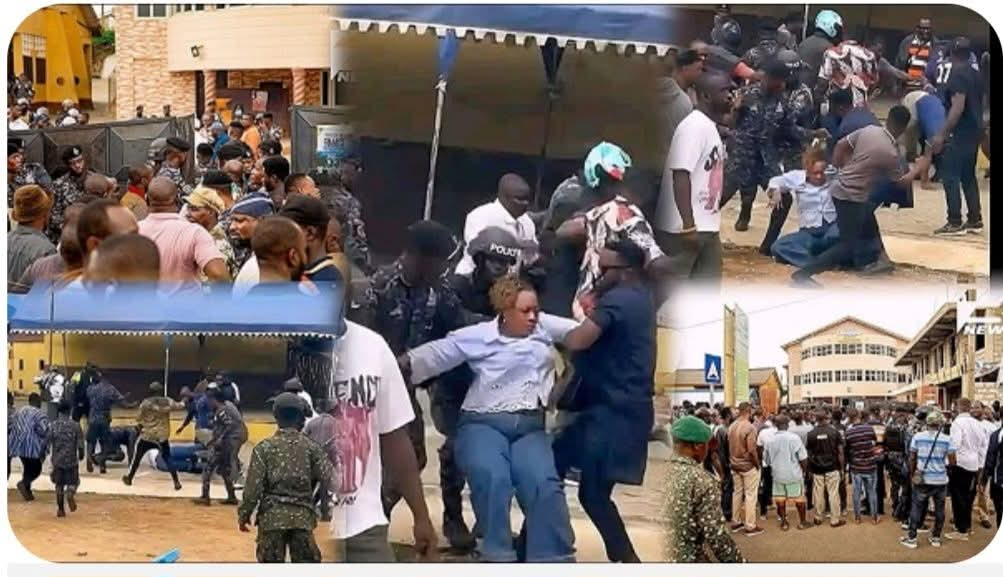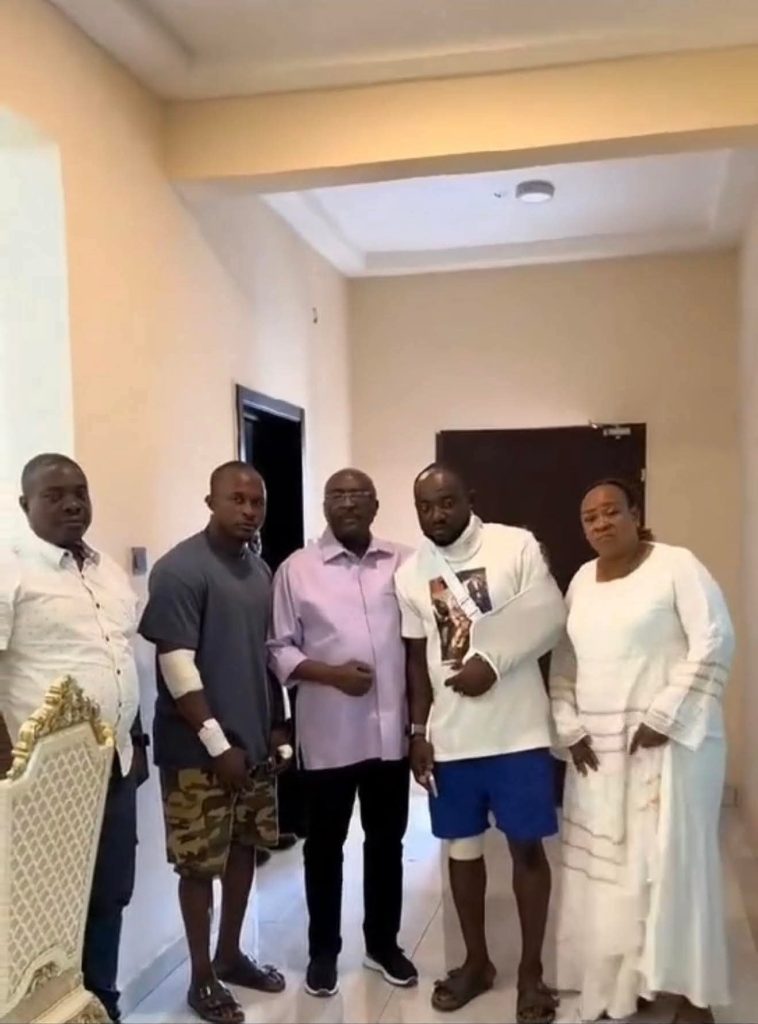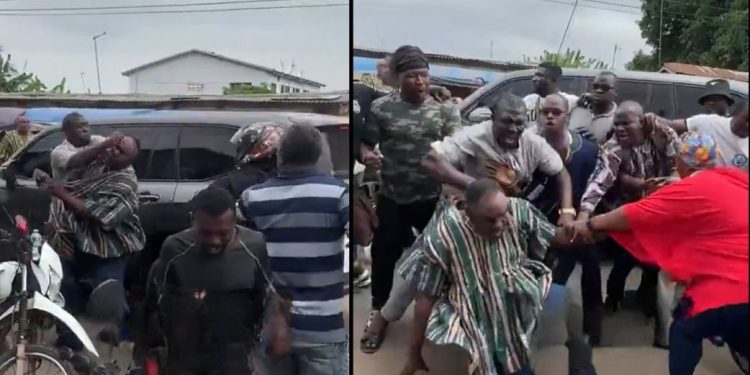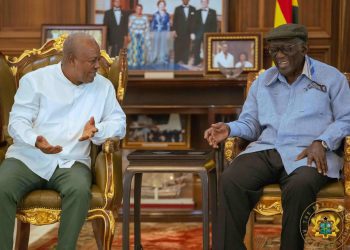The rerun of the parliamentary election in the Ablekuma North Constituency, marred by brutal attacks on New Patriotic Party (NPP) supporters by thugs affiliated with the governing National Democratic Congress (NDC), is a disturbing reminder that election violence has become a normalised, dangerous feature of Ghana’s democracy.
What was supposed to be a peaceful electoral exercise once again descended into chaos—another chapter in a grim history of political brutality that threatens to unravel the very fabric of the country’s Fourth Republic.
Since 2001, Ghana’s electoral processes—presidential, parliamentary, by-elections, and reruns—have been repeatedly scarred by violence.
These confrontations are not random.

They are planned, orchestrated, and executed largely by political vigilante groups and foot soldiers acting with the silent approval—or, at times, active coordination—of party leadership.
The goal is simple: secure electoral victory by any means necessary.
From ballot box snatching, voter intimidation, and open street brawls to threats, assaults, and even murder, violence has been deployed as a political strategy.
And as the 2025 Ablekuma North rerun shows, Ghana is no closer to breaking this cycle.
Instead, the country stands at the edge of a political precipice.
Vigilante groups
The emergence of groups like the Azorka Boys (NDC), Eastern Mambas (NDC), The Hawks (NDC), and Invincible Forces (NPP), Delta Force (NPP), Kandahar Boys (NPP), Bolga Bull Dogs (NPP) turned elections into war games.
A historical map of violence: 2001–2025
A chronological analysis of electoral violence in Ghana since 2001 reveals a disturbing pattern that has not only persisted but intensified over time.
2001–2008: NPP groups seizures and street clashes
The return of the NPP to power in 2001 ushered in a wave of politically motivated seizures of public spaces.
NPP foot soldiers clashed with NDC operatives to take over lorry parks and public toilets.
These may seem trivial, but they marked the birth of violent party vigilantism.
2009: NDC groups seizures and attacks
In 2009, the tables turned when the NDC came to power.
Their supporters, emboldened by electoral victory, seized public institutions like National Health Insurance Scheme (NHIS) offices, Metro Mass Transit facilities, and even ousted District Chief Executives (DCEs).
Ghana was descending into political gangsterism.
2009–2015: By-elections turn battlefields
Between 2009 and 2015, by-elections and re-runs were consistently plagued by violence:
Akwatia, August 2009
Violent clashes disrupted election rerun at Akwatia constituency in the Eastern Region with ballot boxes destroyed, voters intimidated, and polling stations vandalized.
The violence was orchestrated by NDC groups.
Chereponi, September 2009
During a bye-election at Chereponi constituency in the Savannah Region, armed confrontations erupted when NDC vigilante groups attacked NPP supporters.
A man believed to NDC member was captured on video with a pistol firing into the crowd.
Several injuries were recorded, and the election had to be halted temporarily.
Atiwa, August 2010
A bye-election in Atiwa Constituency in the Eastern saw NPP groups attacking NDC groups in a violent clash.
Stones and bottles flew through the air. People bled, and votes were compromised.

Talensi, July 2015
Talensi Constituency in the Upper East Region also witnessed what resembled a full-on combat zone, during a bye-election.
NDC party vigilantes engaged in bloody confrontations attacking NPP groups.
Cars were torched, and several people were hospitalised.
2019: Ayawaso West Wuogon—The watershed
The January 31, 2019 by-election in Ayawaso West Wuogon Constituency in the Greater Accra Region was a breaking point.
Armed masked men—later identified as operatives allegedly tied to national security—opened fire, injured NDC supporters, and terrorised voters.
The graphic scenes circulated widely on social media, drawing international attention and scathing condemnation.
Vigilantism and Related Offences passed in 2019
This incident pushed President Nana Akufo-Addo to propose and push through the Vigilantism and Related Offences Act, 2019, which outlawed political militia activity.
It promised up to 15 years imprisonment for vigilante offences and ordered all party-affiliated groups to disband.
The law that changed nothing
The Vigilantism Law, while well-intentioned, proved to be toothless.
During the 2020 general elections, eight Ghanaians were killed in election-related violence, and dozens injured.
The security agencies were largely unresponsive, and no serious prosecutions followed.
NDC thugs cause mayhem in 2024
By 2024, the NDC returned to power after violent unrest in several areas, including the burning of Electoral Commission offices and destruction of electoral materials.
Rather than prosecuting those responsible, many perpetrators are walking free parading the corridors of power.
The party’s affiliated groups went on the rampage—looting, assaulting, and seizing public institutions in broad daylight, almost with impunity.
Now, in 2025, the Ablekuma North rerun has made a mockery of the Vigilantism Law.
Despite the legal prohibitions, NDC-aligned thugs attacked NPP supporters, disrupted voting, and created a climate of fear.
Police stood by, silent, as if powerless—or instructed not to act.
Failure of security agencies and the justice system
One of the most disturbing elements in this dark chronicle is the failure of the Ghana Police Service.
Repeatedly, officers deployed to elections do nothing while political gangs unleash terror.
It has become routine: the violence happens, arrests are made, bail is granted—and the case disappears.
The state’s inability—or unwillingness—to prosecute offenders has emboldened vigilantes.
When those responsible walk the corridors of power instead of jail time, it sends a chilling message: violence pays.
2028 Looms: The spectre of retaliation and escalation
The violence at Ablekuma North has triggered responses from within the NPP, where some members are already vowing to reorganize their vigilante groups in preparation for the 2028 elections.
If these threats materialise, the country could descend into full-blown political warfare.
With both major political parties now openly implicated in deploying, rewarding, and protecting violent operatives, Ghana’s democracy stands on the edge of collapse.
Elections, once celebrated as a symbol of national pride, have become blood-sport—fought not with ideas, but with stones, sticks, and bullets.
Ghana on the brink
Ghana’s Fourth Republic is no longer a shining example of African democracy.
While the country has avoided civil war, its elections are increasingly defined by mayhem and impunity. ‘
With suspected criminal elements from unstable neighbouring countries infiltrating Ghana’s illegal mining sector, there are growing fears that these actors could embed themselves within vigilante groups and orchestrate activities aimed at destabilising the country.
The Ablekuma North rerun, like Ayawaso, Talensi, and Akwatia before it, is not an isolated incident.
It is part of a systemic crisis—a slow, painful disintegration of democratic norms under the weight of political violence.
Without urgent, sincere, and non-partisan reform—beginning with the strict enforcement of existing laws, a complete overhaul of political accountability, and a reorientation of electoral culture—Ghana risks becoming another failed democracy.
The warning signs are all around. The time to act is now—before 2028 becomes the point of no return.











